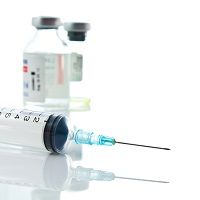Article
No Evidence HPV Vaccine Causes CRPS or POTS in Young Women
Author(s):
A committee of the European Medicines Agency has completed a long-anticipated review finding no evidence that human papillomavirus (HPV) vaccines trigger complex regional pain syndrome (CRPS) or postural orthostatic tachycardia syndrome (POTS).

A committee of the European Medicines Agency (EMA) has completed a long-anticipated review finding no evidence that human papillomavirus (HPV) vaccines cause two rare conditions in young women. Some had questioned whether complex regional pain syndrome (CRPS) and postural orthostatic tachycardia syndrome (POTS) could be triggered by the HPV vaccination. The EMA paper concluded that “there is no reason to change the way the vaccines are used.”
The HPV vaccine is given to protect patients from cervical cancer and other HPV-related cancers and pre-cancerous conditions. The Pharmacovigilance Risk Assessment Committee (PRAC), which assesses all aspects of risk management for patient medications, reviewed published research, data from clinical trials and reports of suspected side effects from patients and healthcare professionals.
It also consulted a group of leading experts in the field, and took into account detailed information received from a number of patient groups and patient advocacy groups.
The finding is consistent with a large European study finding no link to the HPV vaccine and chronic fatigue syndrome (CFS), which shares some of the same symptoms as CRPS and POTS.
One of the key finding of the review is that the overall rates of young women to contract CRPS and POTS are no different from expected rates of incidence in these age groups. In arriving at the conclusion, the PRAC even took into account possible underreporting of the two conditions.
The PRAC’s recommendations will now be passed to the Committee for Medicinal Products for Human Use (CHMP) for adoption of the Agency’s final position. The evidence supporting the PRAC review will be published in an assessment report following the CHMP opinion.
The review was not initiated to solve the question about whether or not the benefits of the HPV vaccines outweigh their risks, but rather was undertaken to clarify aspects of the vaccines’ safety profile. The EMA has estimated that more than 72 million people worldwide have been vaccinated. HPV vaccination is part of the American Academy of Family Physicians and the Centers for Disease Control and Prevention, among others, recommended vaccination schedule for girls and boys before the age of 12.



